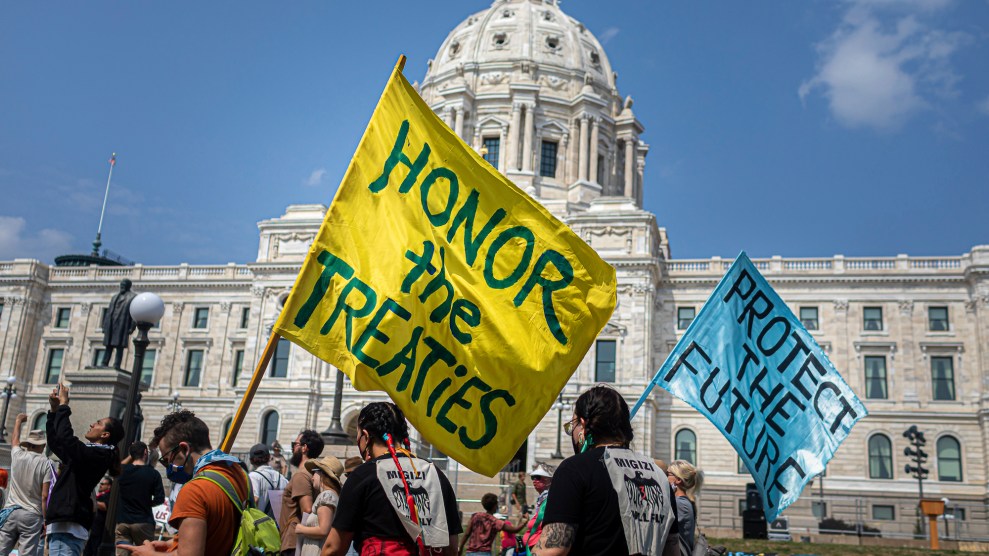As David notes here, the Washington Post‘s Paul Kane did the math and figured out that it will be basically impossible for either Hillary Clinton or Barack Obama to win enough pledged delegates to take the nomination outright. This is a big problem for the Democrats. Thankfully for them, I have a solution (after the jump).
First, some background: Pledged delegates are assigned to each candidate based on their performance in primaries in caucuses and are obliged to vote for the candidate that “owns” them. Superdelegates get their votes because they are Democratic party honchos or elected officials, and can vote for whomever they so choose. (You can learn even more from my colleague Jonathan Stein’s excellent delegate primer).
As David correctly notes in his post, either Clinton or Obama will finish with a majority of non-super-delegates. But if enough superdelegates vote for the second-place finisher, it could vault him or her into the lead (and the nomination), and the nominee will have essentially been chosen against “the will of the majority (however slight it might be) of Democratic voters.”
Such a result would almost certainly be a disaster for the Democrats. It would embitter the losing candidates’ supporters, make the winner seem weak, make the party appear divided and undemocratic, and open the nominee to GOP attacks that he or she “wasn’t even picked by the majority of his or her party.” It would seriously endanger the Democrats’ chances in November.
Thankfully for the Democrats, I (Update: And, apparently, David Sirota) have a solution. Starting tomorrow, both campaigns and the national party should call for all superdelegates to sign a pledge that they will support the candidate who receives the most non-super delegates. Even if only one of the campaigns endorses the pledge, it will be very hard for the other campaign to argue against it without looking conniving and undemocratic. Once the campaigns are on board, it will be very hard for the national party to disagree or the superdelegates to avoid signing the pledge. The pressure to sign would be extraordinary. Such a pledge will ensure that the campaigns spend the rest of the primary season battling for the votes of ordinary people, not struggling for the backing of party honchos. It will ensure that the eventual nominee represents the preference of the majority of the party. And it will be better for voters, better for party unity, and better for the Democrats’ chances in November. There: problem solved.















